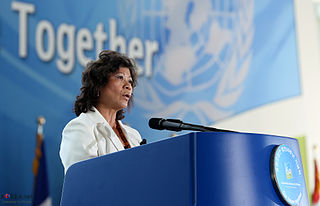A Quote by Adam Smith
In ease of body, peace of mind, all the different ranks of life are nearly upon a level and the beggar who suns himself by the side of the highway, possesses that security which kings are fighting for.
Related Quotes
You can go to doctors until the last cow has been placed in its shed. You can journey the earth in search of peace of mind. You can experiment with a dozen theories, hoping for a relief from worries, or the problems which beset you, but unless you learn to relax you will end up disappointed. Tension is a killer! Just relax and note the immediate effect. One of peace and ease of mind. One in which every organ of the body joins. In relaxation there is unity of mind, body and spirit.
Swami cannot give peace of mind; you must work for it yourselves. First, stop the questioning and ask, 'who am I?'. This is my body, my mind, my intelligence. But who is this 'My'? Who is it that claims the ownership of that which is declared to be 'mine'? 'My' indicates ownership. That 'My' is the life. As long as the life is in the body, there is this connection between the 'my' and the intellect - 'my' body, 'my' house, 'my' land. But the moment you remove the life from the body, there is no 'my' or sense of possession. Life is God.
We have moved into an era where we are called upon to raise certain basic questions about the whole society. We are still called upon to give aid to the beggar who finds himself in misery and agony on life's highway. But one day, we must ask the question of whether an edifice which produces beggars must not be restructured and refurbished.
An affectionate disposition not only makes the mind more peaceful
and calm, but it affects our body in a positive way too. On the
other hand, hatred, jealousy and fear upset our peace of mind, make
us agitated and affect our body adversely. Even our body needs peace
of mind and is not suited to agitation. This shows that an
appreciation for peace of mind is in our blood.
I wish to preach not the doctrine of ignoble ease but the doctrine of the strenuous life; the life of toil and effort; of labour and strife; to preach that highest form of success which comes not to the man who desires mere easy peace but to the man who does not shrink from danger, from hardship, or from bitter toil, and who out of these wins the splendid ultimate triumph. A life of ignoble ease, a life of that peace which springs merely from lack either of desire or of power to strive after great things, is as little worthy of a nation as of an individual.
Peace is something tangible. It silences the outgoing energy of the mind and feeds the aspiring heart. Peace is not merely the absence of quarreling and fighting. True peace is not affected by the roaring of the world, outer or inner. This sea of peace is at our command if we practise the spiritual life.
Man is always something more than what he knows of himself. He is not what he is simply once and for all, but is a process; he is not merely an extant life, but is, within that life, endowed with possibilities through the freedom he possesses to make of himself what he will by the activities on which he decides.
And since the mind is of a man one part,
Which in one fixed place remains, like ears,
And eyes, and every sense which pilots life;
And just as hand, or eye, or nose, apart,
Severed from us, can neither feel nor be,
But in the least of time is left to rot,
Thus mind alone can never be, without
The body and the man himself, which seems,
As 'twere the vessel of the same- or aught
Whate'er thou'lt feign as yet more closely joined:
Since body cleaves to mind by surest bonds.
Peace is the absence of war, but beyond that peace is a commodity unlike any other. Peace is security. Peace is a mindset. Peace is a way of living. Peace is the capacity to transcend past hurts - to break cycles of violence and forge new pathways that say, I would like to make sure we live as a community where there is justice, security, and development for all members. At the end of the day, peace is an investment; it is something you create by investing in a way of life and monitoring where your resources go.
Thousands of years ago, man lived in harmony with the rest of the natural world. Through what we would today call Telepathy, he communicated with animals, plants, and other forms of life-none of which he considered "beneath" himself, only different, with different jobs to perform. He worked side by side with earth angels and nature spirits, with whom he shared responsibility for taking care of the world.
Another problem of fragmentation is that thought divides itself from feeling and from the body. Thought is said to be the mind; we have the notion that it is something abstract or spiritual or immaterial. Then there is the body, which is very physical. And we have emotions, which are perhaps somewhere in between. The idea is that they are all different. That is, we think of them as different. And we experience them as different because we think of them as different.



































